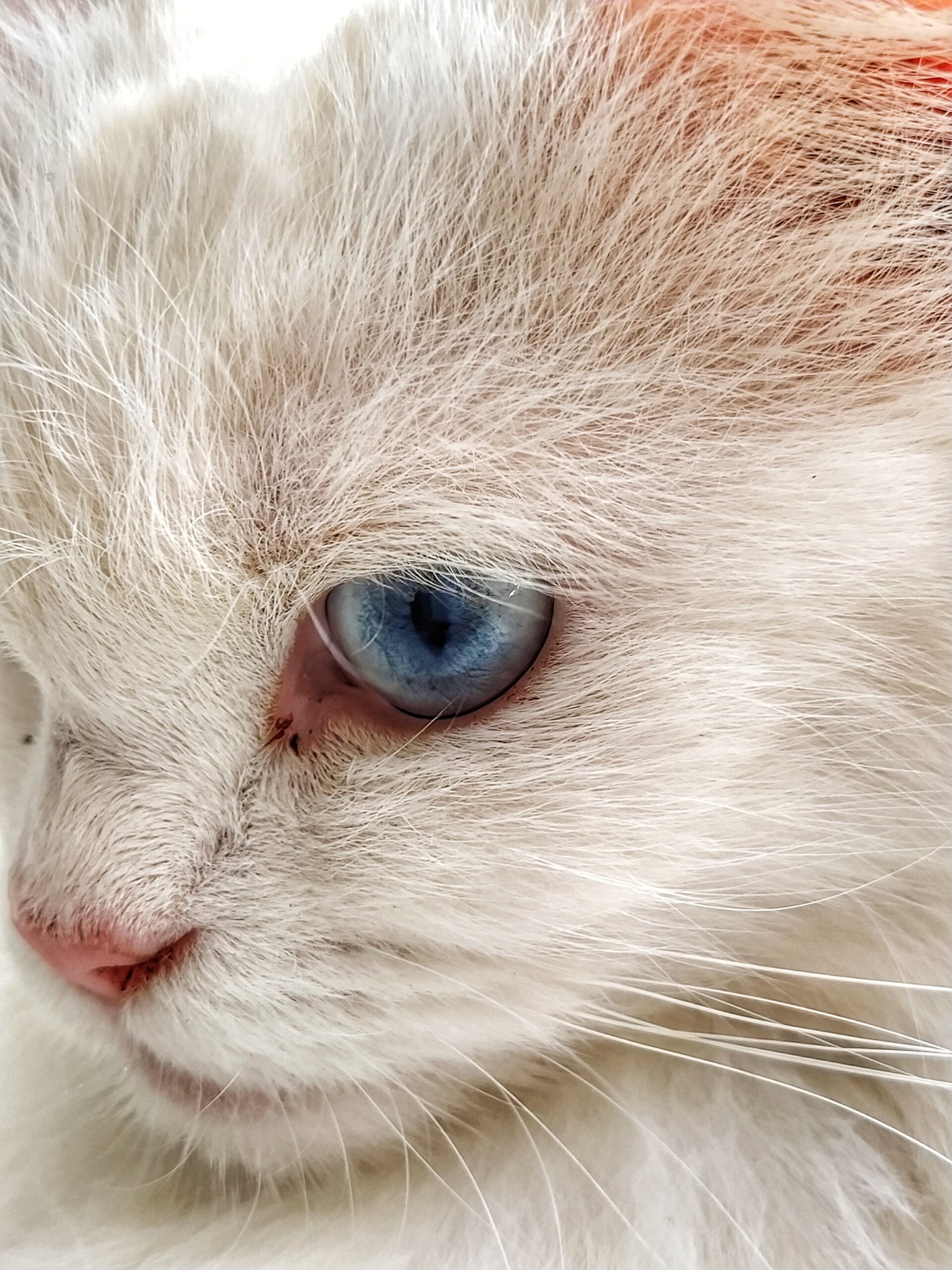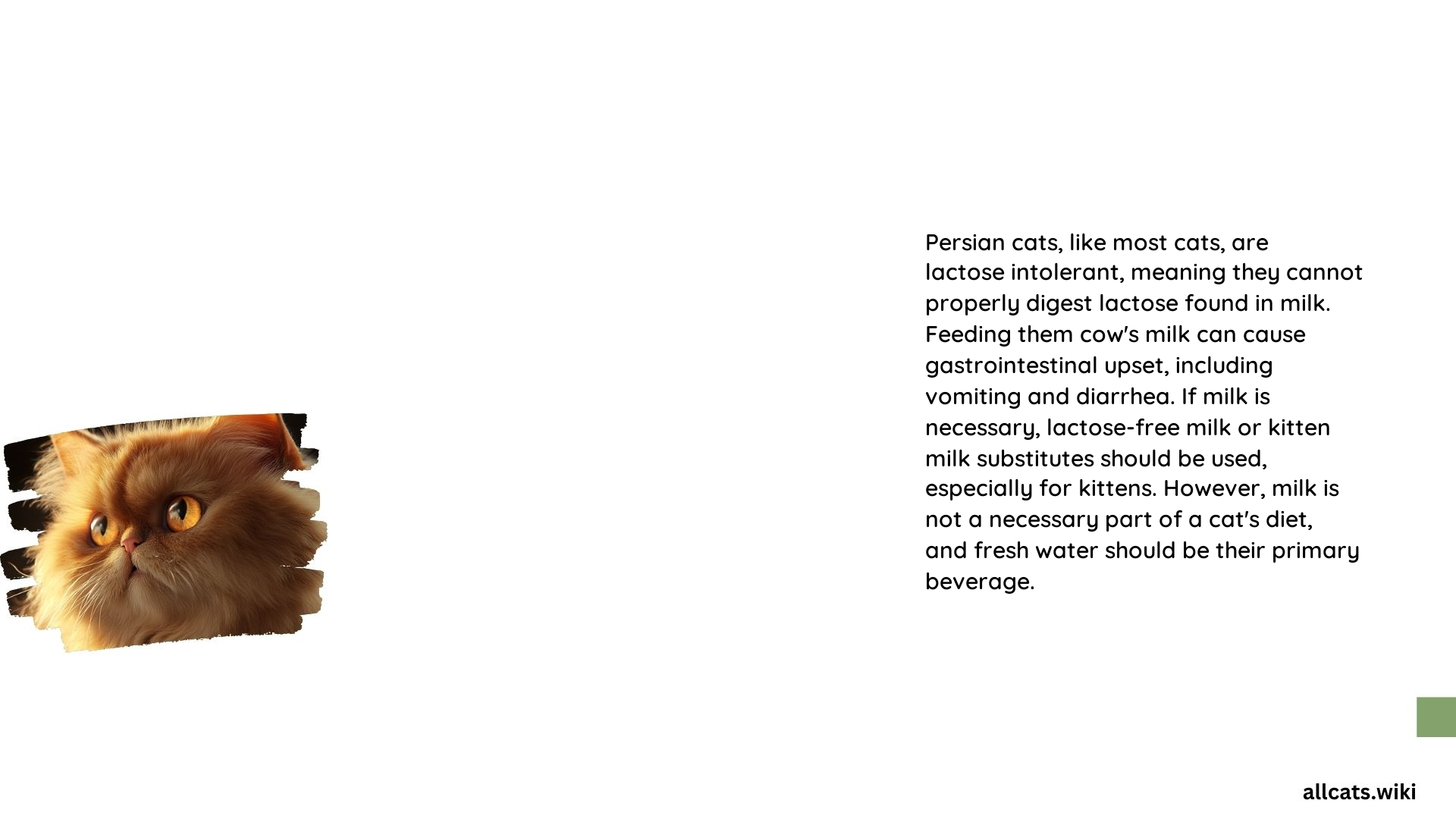Safety of Milk for Persian Cats and Potential Digestive Issues

Persian cats, like most adult cats, are lactose intolerant. This means they do not have the enzyme lactase, which is necessary to digest lactose, a sugar found in milk. Consuming milk can lead to digestive issues such as diarrhea, vomiting, and stomach cramps.
Is Milk Necessary in a Persian Cat’s Diet?

Milk is not a necessary component of a Persian cat’s diet. Cats are obligate carnivores and can thrive on a diet rich in animal protein and fat without the need for milk.
How Do the Characteristics of Persian Cats Affect Their Dietary Needs?
Persian cats have a flat muzzle and short jaw, which can make eating certain types of food difficult. However, this does not affect their ability to digest milk; rather, it is their lactose intolerance that is the issue. Persian cats are also prone to digestive system problems, but this is not directly related to milk consumption. It highlights the importance of a balanced and easily digestible diet.
Can Milk Powder Be Given to Persian Kittens?
For motherless kittens, a specialized kitten milk replacer is recommended. This formula replicates the nutrition found in a mother cat’s milk and is designed to be easily digestible by kittens. Regular milk powder or goat milk powder is not suitable for kittens as they lack the necessary enzymes to digest lactose.
Can a 6-Month-Old Persian Cat Be Given Cow’s Milk?
It is not recommended to give cow’s milk to a 6-month-old Persian cat due to lactose intolerance. This can lead to severe digestive issues.
Does Diluting Milk with Water Make It Safe for Persian Cats?
No, diluting milk with water does not make it safe for consumption by Persian cats. The lactose content remains, and it can still cause digestive problems.
What Are the Alternative Foods for Persian Cats?
Persian cats should be fed a diet rich in animal protein and fat, such as whole meat, fish, and organs. Wet food is generally recommended over dry food to ensure adequate moisture intake and to avoid dehydration and other health issues.
Conclusion
In summary, milk should not be given to Persian cats due to their lactose intolerance. Instead, focus on providing a natural diet rich in animal protein and fat, and use specialized formulas for kittens if necessary. Avoid lactose-containing products to ensure the health and well-being of your Persian cat.
